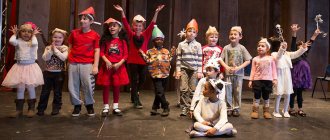Formation of the Froebel system of pedagogical education for preschoolers
Under these conditions, Friedrich Froebel and his Swiss teacher Johann Pestalozzi came to pedagogy. Pestalozzi, based on the educational ideas of the existence of natural laws of nature, creates the first holistic concept of raising children. According to him, the task of pedagogy is to raise and educate a child in accordance with human nature, expressed in the abilities to think, create and feel. This was a radical break with previous Christian teaching, which considered it necessary to subordinate the potentially sinful nature of man to its picture of the world. Froebel, who taught and simultaneously studied at Pestalozzi’s school for two years, transferred his ideas to the soil of the German idealism of Kant and Fichte.
Froebel's pedagogical ideas were not immediately in demand. At first, like any innovator, he encountered resistance from the German teachers and the state, who accused him of nothing less than condoning atheism. More of an inventor and teacher, Friedrich Froebel was not a very good popularizer of his method. Because of this, his career experienced ups and downs, and he himself moved from one part of Germany to another. Along with him, his kindergartens, which opened and closed, could not settle. Only after Froebel's death did his pedagogical ideas gain recognition. In 1859, seven years after the death of the teacher, the Froebel Society emerged in Berlin, which was engaged in the dissemination of this system.
A special contribution to the popularization of kindergartens was made by Lina Morgenstern, a children's writer, teacher and figure in the German feminist movement of that time. During this period, issues of preschool education, universal school education, women's and labor issues were considered by progressive minds as links in the same chain of economic and political backwardness, so it is not surprising that pedagogical reformers took an active position on other flashy issues of our time.
In 1860, Morgenstern wrote the book “Childhood’s Paradise” - the first systematic textbook on Froebel’s method. Gradually, this method conquers all of Germany, becoming the national German preschool education system, and then begins to spread throughout the world. The second half of the 19th century was a time when German schools and kindergartens were considered exemplary; they were seen as the key to Germany’s economic success. The countries in which there was a strong Germanophile tradition of importing intellectual innovations, including Russia, were most influenced by German pedagogical ideas. Domestic pedagogy, which was born at the same time, was greatly influenced by Froebel’s ideas, and his followers were called Froebelians here.
Popular questions from parents
You are being advised by child psychologist Yulia Viktorovna Buyanova.
What do you see as the main advantages of this technique?
“The undoubted advantage of this method is attention to the child, his needs and individual abilities. And joint activities with parents ensure psychological comfort and development of each family member, establishing strong connections and mutual understanding.”
What disadvantages of the technique can you note?
“Froebel’s methodology had a huge impact on the development of preschool pedagogy and became widespread. However, in its original form it does not correspond to the level of technological development and the speed of our time.”
Why do you think this method is not as popular today as, for example, Montessori?
“It should be noted that Froebel was the founder of sensory education. At the same time, Maria Montessori actively used sensory exercises to develop thinking, feelings, sight and sound. Also, Froebel’s method regulates the activities of children in the greatest possible way, in contrast, the Montessori method is aimed at the fact that the teacher only observes the process, creating for the child an environment for multifaceted development.”
We hope that our article has helped you to better understand this system of education for preschoolers. You can use some of it for the development of your children, creating your own method for upbringing and education.
Pedagogical systems of Froebel and Montessori
When Maria Montessori created her method half a century later, Froebel’s school was already widespread. In the preface to the English text of “The Children's Home,” the American scientist and teacher Henry Holmes calls Froebel's preschool institutions a “conservative kindergarten,” contrasting it with the liberal kindergarten, as well as Montessori childhood homes. In the works of Montessori herself, one can no longer find references to Froebel, as well as his critics - his system has become a solid foundation of modern pedagogy, which can be supplemented or corrected, but cannot be denied completely. Moreover, there is a huge amount in common between the pedagogical systems of Montessori and Froebel, even some continuity. First of all, these are pedagogical systems resting on a solid, reflected philosophical foundation. This allows them to live in a modified form even a century after the death of their founders.
Like Froebel, Maria Montessori sought to reveal the creative abilities hidden in children, to form a new person - and in this sense, she goes much further than the conventional system of preschool education, the meaning of which is usually seen in preparation for school. Finally, like Froebel’s “gifts,” “Montessor” didactic material is not just an auxiliary tool for play, but almost the central place of the pedagogical method. Considering the degree of freedom a child has in childhood homes, Montessori teachers, no less than Froebel teachers, can claim the title of “gardeners of childhood.”
Free lessons from experts
They will help you take the first step in creating a developing space for your child at home
Pedagogical ideas of Friedrich Froebel
The expression “kindergarten” belongs to the German educator Friedrich Froebel and was coined in 1840 to designate his then revolutionary preschool institution in Thuringia. Froebel used the word "garden" because he compared children to delicate garden plants that grow only through the conscious and tireless efforts of gardeners. Actually, the essence of this metaphor is not in children - the flowers of life - but in the need for good gardeners and educators for children's development. The idea for the first half of the 19th century was non-trivial: the then views on childhood as a special stage in a person’s maturation were not distinguished by either breadth or any particular sophistication. Most of the orphanages belonged to the church (Catholic or Protestant), discipline and obedience reigned in them, coupled with obligatory prayers and the hypocrisy inherent in this method of education. The need for a teaching profession was not obvious.
Here it is worth making a digression and recalling that the very idea of childhood is an invention of the New Age. As the French historian of family and family life Philippe Ariès notes, until the 17th century, a child was perceived as a “little adult.” Both peasants and kings did not have any taboos on information or relationships between people in the presence of children. First of all, this concerned such topics that are now half-hidden for children, such as death and sex. Regarding the latter, it was believed that until puberty, children were simply not interested in this, but adults should not deny themselves. By the mid-17th century, Catholic and Protestant moralists were able to reverse this Pantagruelian medieval spontaneity in favor of the Christian idea of the purity and sanctity of childhood. The concept of childhood as a special state of a person is conquering minds, but this concept was devoid of movement. The child was seen by religious teachers as a being without passions and sins. The Baby Jesus from icons and Renaissance paintings is the ideal child. Of course, the inquisitive child’s mind, exploring the world, constantly destroyed the static ideal, and rods and other methods of discipline were used. Here we can recall the classic literary character Tom Sawyer, who is interested in wandering around the outskirts of his town, while his Sunday school teachers try to make him live through pictures and verses of Scripture. If the medieval “little adult” participated in human society on an equal basis with the elders, without making allowances for age, then the modern child is generally denied such participation.



